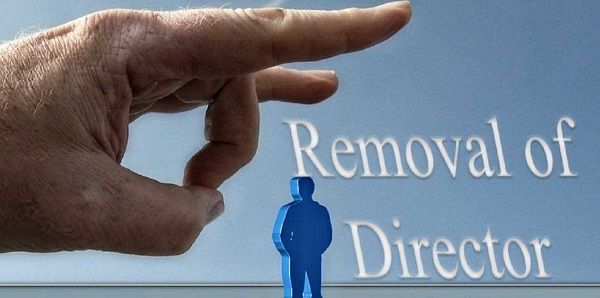Shareholders’ Right to Remove Directors Without Reasons in terms of section 71(1) and (2) of the Companies Act, 2008

Introduction
This article examines the Western Cape High Court’s decision in Jonathan Philip Weir v Wiehahn Formwork Solutions (Pty) Ltd and Others (Case No. 19494/2024) [2025] ZAWCHC 74; [2025] 2 All SA 938 (WCC); 2025 (4) SA 637 (WCC), where the central issue was whether shareholders are legally required to provide reasons for the removal of a director under sections 71(1) and (2) of the Companies Act, 2008 (“the Act”).
Facts
Mr Jonathan Philip Weir, an executive director of PR Wiehahn (Pty) Ltd (“the Company”), was notified on 13 June 2024 of a shareholders’ meeting scheduled for 2 July 2024 to consider his removal in terms of sections 71(1) and (2) of the Act. Mr Weir promptly requested the reasons for the proposed removal. Mr Bradnick, an executive director and shareholder, declined, asserting that he lacked a mandate from the shareholders to provide reasons.
In the lead-up to the meeting, Mr Weir’s attorney contended that the meeting could not lawfully proceed without the provision of reasons, and that, absent those reasons, it was non-compliant with sections 71(1) and (2). Only on the eve of the meeting (1 July 2024) did Mr Bradnick inform Mr Weir that the purported grounds were a “loss of confidence” and alleged threats made against individuals in the company.
The shareholders unanimously voted for Mr Weir’s removal on 2 July 2024 after he and his attorney made representations. Dissatisfied, Mr Weir challenged the resolution, arguing that the shareholders ought to have provided reasons in advance so that he could adequately prepare. In response, a “precautionary” shareholders’ meeting was convened on 23 October 2024, this time with specific reasons (irretrievable breakdown of the relationship and incompatibility) included in the notice. Mr Weir did not attend, maintaining that his earlier removal had been unlawful.
Nonetheless, a second unanimous resolution removing him was adopted, and he pursued litigation to challenge his removal.
The Law
The matter turned on the interpretation of sections 71(1) and (2) of the Companies Act, which regulate the removal of directors by shareholders. Those provisions require due notice of the meeting and resolution, and afford the director a reasonable opportunity to present before the resolution is put to a vote.
At paragraph 36, the court emphasised that sections 71(1) and (2) do not expressly impose a duty on shareholders to furnish reasons for removal. That absence stands in marked contrast with section 71(4)(a), which explicitly requires a “statement setting out reasons for the resolution, with sufficient specificity” when a director is removed by fellow directors.
In paragraph 29, the court observed that the distinction is deliberate and logically defensible: shareholders exercise a proprietary right to vote in their own interests, whereas directors must act in accordance with fiduciary duties owed to the company.
Conflicting decisions
The court addressed divergent High Court authorities on the point. The applicant relied on Pretorius and Another v Timcke and Others (Timcke), a Western Cape High Court decision which held that section 71(2) implicitly requires shareholders to provide reasons in advance, and that without such reasons a director cannot make a “meaningful presentation”.
Other divisions, including the Gauteng Division in Miller v Natmed Defence (Pty) Ltd (Miller) and the Eastern Cape Local Division in Besso Investments (Pty) Ltd and Others v Capeco Development (Pty) Ltd and Others (Besso), rejected Timcke. Those courts concluded that the absence of an explicit requirement for reasons in section 71(2)(b) (shareholder removal), compared with its clear inclusion in section 71(4)(a) (director removal), reflects legislative intent not to impose such a requirement on shareholders.
The court found that Timcke impermissibly read into section 71(2) an obligation not contained in the statute. It further held that Timcke had misinterpreted the Constitutional Court’s decision in Minister of Defence and Military Veterans v Motau and Others (Motau), which did not establish that a director facing removal by shareholders is entitled to reasons in advance of the meeting.
In reaching its conclusion, the court departed from the doctrine of stare decisis by rejecting Timcke and aligning with Miller, affirming the enduring principle that shareholders may remove directors “at will” — an exercise of a proprietary right inherent in shareholding — without the need for the removal to be reasonable or grounded in “good and sufficient cause”.
The High Court ultimately dismissed Mr Weir’s application and upheld the validity of his initial removal.
Conclusion
The judgment confirms that shareholders are not required to give reasons for the removal of a director under sections 71(1) and (2) of the Companies Act. Even on the assumption that reasons were necessary, the court found that Mr Weir had been provided with reasons and afforded a reasonable opportunity to make representations at the meeting.
The decision brings much-needed clarity to a contentious area of company law, affirming that shareholders — as the company’s ultimate controllers — have a proprietary right to remove directors, distinct from the exacting procedural regime that governs director-initiated removals.